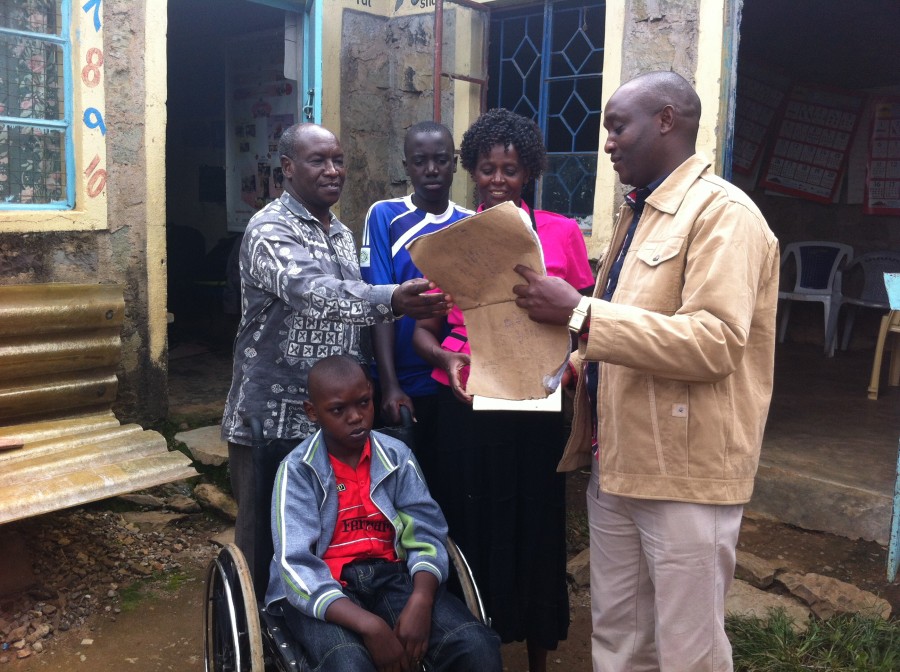Communication between state and citizens is a key element of an equal and just society – but do we know if the state is listening to us?
A group of researchers from Ghana, Kenya, South Africa, and Tanzania looked at the extent to which the state listens; to whom, how, when and why. Lead researcher, Miguel Loureiro introduces the research in this first blog of a weekly series, which will explore these questions in each country.
State-citizen communication is an important element for social justice, the fair distribution of opportunities, privileges and wealth within a society. Growing social inequalities, lack of suitable public services, and the denial of basic human rights all have an impact in widening the state-citizen communication gap. The focus of Making All Voices Count is the narrowing of this gap – to improve transparency and accountability – through creative and cutting-edge solutions, ensuring that both citizen voices are heard and governments have the capacity and incentive to listen and respond.
How do we know if someone is listening?
A group of researchers decided to turn Making All Voices Count on its head and ask instead if the state was listening to these voices. We chose to explore the extent to which the state listens; to whom, how, when, and why (or why not). In other words, instead of looking at ‘mouths’, we decided to look at ‘ears’.
A growing number of researchers, the likes of Anu Joshi, Jonathan Fox, John Gaventa, and Derick Brinkerhoff, have been highlighting the fact that successful social accountability strategies depend on both citizens and civil society groups (the demand side) and individuals within state structures (the supply side), as well as the interactions and coordination between these two sides. Yet, there is far more work on the demand side (the mouths) than on the supply side (the ears); compared to citizen voices we know less about state responsiveness.
Are we being undermined by abstract ideas of accountability?
Instead of asking state actors these questions in abstract (let’s face it, transparency and accountability can be rather theoretical notions), and instead of asking them directly about accountability and transparency (who would say no?), we opted to look at more concrete but indirect ways to see if the state was listening to its citizens.
We chose to look at policy processes of key historical policies, let’s call them ‘policy-events’, moments of policy creation that have the ability to shape and transform a country’s society, such as universalising health coverage or primary education, or eliminating child poverty, or even push for communication as a social good. These policy-events are proxies – representations – of how a state thinks about social justice. We suggest that the events surrounding the creation and life of key policies can help us identify when does the state listen (or not) to its citizens, under which conditions, and so on.
We ground our explorations in four policy-events:
- National Health Insurance Scheme in Ghana
There has been a move to a quasi-universal access to health over the past two decades, but serious issues of coverage and accountability are becoming more and more visible.
- Universal Primary Education in Tanzania
Tanzania has been trying to reach universal primary education since independence (and it almost got there, before Structural Adjustment Programmes brought the whole thing down), with a further boost since 1995, but is having problems with the quality of education (a matter of quantity versus quality).
- Child Support Grant in South Africa
Since the end of Apartheid, South Africa has tried to stretch its welfare system equally to all citizens to end poverty through social grants, but a bloating social grants policy has had no impact on an ever-rising inequality.
- E-Government push in Kenya
Kenya is trying to transform itself into a digital country with a boost of e-government services, but expecting too much from the ICT silver bullet.
Where are the ears and mouths really?
We started by mapping which ‘mouths’ and ‘ears’ were in action during these policy-events; during the design, implementation, and revision of health, education, welfare, and communication policies that contribute to social justice. As we did this, we interviewed some of the key ears and mouths, compared and contrasted their voices with the text of the policies, and situated them in the current literature.
Over the next few weeks we are going to use this blog space to delve deeper into each context, and – as we wrap-up our study – propose answers to our country-specific questions, as well as the more overarching one of “when does the state listen?”
Our series starts next week with Nyambura Salome of Kenyatta University, who asks if the recent explosion of e-government practices in Kenya (as governments embark on ICTs reforms around the world) has increased citizen engagement with the State.
About the author
Miguel Loureiro is a fellow at the Institute of Development StudiesRelated content
-
BLOG | October 15, 2015
The 7-hour itch: Diary of a Kenyan eCitizen -
BLOG | August 2, 2016
How, when and why do governments respond to citizens? -
BLOG | September 23, 2015
e-Government Platforms in Kenya - Evidence of Change, or 'Politics… -
BLOG | December 4, 2015
South Africa’s social welfare system: what happens to policy when… -
PUBLICATION | January 31, 2016
When does the state listen? -
PROJECT | June 7, 2016
When does the state listen?
